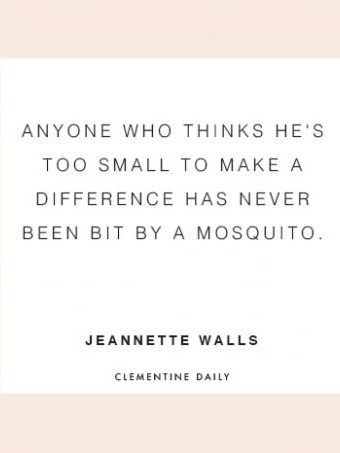ALBERT EINSTEIN’S ESSAY ON RACIAL BIAS IN 1946 | onbeing.org
After witnessing first-hand a “deeply entrenched evil” in the way whit Americans treated black Americans, Einstein penned this essay in 1946 meant for a white readership. His words still ringtrue today…“There is, however, a somber point in the social outlook of Americans. Their sense of equality and human dignity is mainly limited to men of white skins. Even among these there are prejudices of which I as a Jew am clearly conscious; but they are unimportant in comparison with the attitude of the “Whites” toward their fellow-citizens of darker complexion, particularly toward Negroes. The more I feel an American, the more this situation pains me. I can escape the feeling of complicity in it only by speaking out. Many a sincere person will answer: “Our attitude towards Negroes is the result of unfavorable experiences which we have had by living side by side with Negroes in this country. They are not our equals in intelligence, sense of responsibility, reliability.” I am firmly convinced that whoever believes this suffers from a fatal misconception. Your ancestors dragged these black people from their homes by force; and in the white man’s quest for wealth and an easy life they have been ruthlessly suppressed and exploited, degraded into slavery. The modern prejudice against Negroes is the result of the desire to maintain this unworthy condition.”
JENNIFER ANNISTON: FOR THE RECORD, I AM NOT PREGNANT. WHAT I AM IS FED UP | huffingtonpost.com
Jennifer Anniston is fed up up with the objectification, scrutiny and toxic messages we are se.ding to little girls in the name of “celebrity news”…“If I am some kind of symbol to some people out there, then clearly I am an example of the lens through which we, as a society, view our mothers, daughters, sisters, wives, female friends and colleagues. The objectification and scrutiny we put women through is absurd and disturbing. The way I am portrayed by the media is simply a reflection of how we see and portray women in general, measured against some warped standard of beauty. Sometimes cultural standards just need a different perspective so we can see them for what they really are — a collective acceptance… a subconscious agreement. We are in charge of our agreement. Little girls everywhere are absorbing our agreement, passive or otherwise. And it begins early. The message that girls are not pretty unless they’re incredibly thin, that they’re not worthy of our attention unless they look like a supermodel or an actress on the cover of a magazine is something we’re all willingly buying into. This conditioning is something girls then carry into womanhood. We use celebrity “news” to perpetuate this dehumanizing view of females, focused solely on one’s physical appearance, which tabloids turn into a sporting event of speculation. Is she pregnant? Is she eating too much? Has she let herself go? Is her marriage on the rocks because the camera detects some physical “imperfection”?”
WHITE, TEEN BOY INTERROGATES HIS OWN PRIVILEGE IN PASSIONATE POEM | huffingtonpost.com
After Michael Brown, a white woman learns from her black friends and a Facebook group for white people wanting to learn more about the Black American experience, that being “not racist” is not enough. You have to be anti-racist in order for the things to change…“And the ONLY way NOT to be racist is to make a choice that every single day, in every single occurrence throughout your day, you will try to look beyond the surface and look at the greater context from the Black American experience. and Native American. And Latino. And. And. And… As a white person, you must question, reflect and then choose to be distinctly anti-racist not just not racist. Admittedly, this takes effort. And I’m not sure we can ever dismantle all of our racist influences completely. I think this is one of those uncomfortable realities with which we must get comfortable. I’ve learned that by simply acknowledging the racist constructs that exist in almost every aspect of life and then choosing to actively work to dismantle my own subconscious racist belief system means ― I am no longer a stranger in the Black American experience.”
An interesting philosophy on how to build a Christo-centric Lutheran congregation based on the practice of Alcoholics Anonymous…“I think a lot of congregations have a situation where there are more people talking about God in the basement during the week; the basement of their church is more full of people talking honestly about their lives and connecting that with some kind of trust in God. I think that happens more frequently in their basements than it does in their sanctuaries. … You know what organization is not really having a problem is AA; it’s doing fine. They’re not in a crisis. There aren’t meetings in AA where they’re like, “How can we get people to start showing up more?” So I think that there’s something about people speaking honestly about their lives, and sometimes, I think, church is more about pretending your life is fine, and, I think, less and less people have time for that.”
An interview with the author of Eat, Pray, Love, Elizabeth Gilbert, on choosing curiosity over fear.
A continued discussion on the piece penned by Ulysses Burley III about #BLAXIT: 21 things we’re taking with us if we leave, including Jesus, style, and seasoning…
“Tonya: Jesus. We’re taking Jesus.
An interview with the co-founder of Black Lives Matter, Alicia Garza, on the implication of Dallas and the future of the movement…“What I’m seeing and what I’m hearing is people actually rallying around Black Lives Matter at the same time that people are condemning the murders that happened in Dallas. At the same time that we can grieve the senseless loss of life of five police officers, we are also grieving the senseless loss of life that occurred at the hands of the police. Those things can coexist, and in my conversations with folks in our movement and supporters of our movement, people are more energized than ever because they see the ways in which Black Lives Matter, in this case in particular, was unfairly demonized and blamed for the murders of five officers and the injuring and wounding of six others. They see the ways in which that kind of rhetoric really serves a particular political agenda.”


